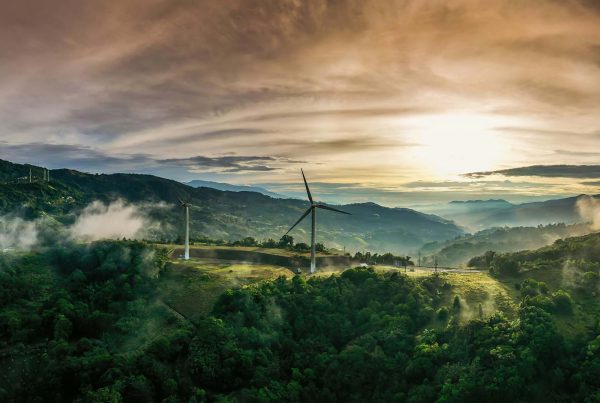Our Head of Environment Practice, Zoe Greenwood, reflects ahead of this year’s World Environment Day campaign.
A call to action around land restoration is the theme of this year’s UNEP World Environment Day. Land restoration to tackle desertification and drought, restore livelihoods, secure food supplies and help us adapt to climate change. Just to put this in context – at least one-fifth of earth’s land is now degraded according to UNEP (and this feels conservative).
There is something pleasingly pragmatic about the headline, ‘We cannot turn back time, but we can grow forests, revive water sources and bring back soils.’ In other words, ‘perhaps we can just stop arguing with ourselves and get on with it.’ There is even a Spotify soundtrack to accompany the campaign (just missing Cher, ‘If I Could Turn Back Time’ if you ask me).
This campaign aligns with the UN Decade on Ecosystem Restoration, which aims to restore 1 billion hectares of degraded land by 2030 – no easy feat. ‘It won’t be quick or easy’ says the report ‘and it will take deep changes to everything . . . but the beauty of ecosystem restoration is that it can happen at any scale – and everyone has a role to play.’
The environment and climate jargon we’ve managed to generate over the last few decades is alienating for many, but restoring land – forests, rivers, drylands . . . the yard, is something much easier to get behind, and we all should. But to be clear this is a race, not a community engagement exercise, and big business and governments need to play alongside communities, NGOs and my kids.
Sometimes I wonder if complexity is the enemy of action. UNEP’s ‘we are the generation that can make peace with the land’ is as problematic as it is uplifting, given the shadows of colonialism and wars that surround us, and yet there is a spirituality to it which is so often lost in the language of environmentalism. It is most welcome here.
As Jane Goodall, renowned primatologist, and environmentalist, said, “Land restoration gives us hope. It demonstrates nature’s incredible ability to heal if we give it a chance and take meaningful action.”
So, what can you do?
- Join Local Clean-Up Drives: Participate in community efforts to clean and restore local and natural areas.
- Educate and Advocate: Spread the word about the importance of land restoration and sustainable practices. Host workshops or seminars in your community.
- Plant Trees: Get involved in genuine tree-planting initiatives.
- Reduce, Reuse, Refuse, Recycle: Minimise waste and encourage recycling to lessen the strain on natural resources as much as possible, at home and in workplaces.
- And, if you’re based in the UK, join many of our clients and their supporters at the Restore Nature Now march on 22nd June in London – https://rspb.org.uk/whats-happening/news/restore-nature-now

Zoe Greenwood
Zoe joined Oxford HR in 2018 after 16 years working in environment and climate. She has led the growth of the Environment, Climate, Conservation and Sustainability sector specialism in the organisation, working with a wide range of client such as WWF, Greenpeace, Mighty Earth, Global Canopy, Ethical Tea Partnership, the Clean Air Fund, Manufacture 2030, Climate Impact Partners and many more.
She is committed to finding and supporting leaders to address the climate and nature emergency. Zoe has a background in learning and development and communications and has worked in India, Ghana, Kenya, China, Brazil, Costa Rica, Brazil and Malaysian Borneo. She has collaborated with local organisations, global NGOs and climate scientists and to design and deliver nature-based behaviour change programmes and worked with the corporate sector to embed sustainability thinking into their operations and culture.
Zoe has a postgraduate degree from the Institute for Leadership and Sustainability (University of Cumbria), she is a trained coach and facilitator and Co-Founder of the Climate Change Coaches.



